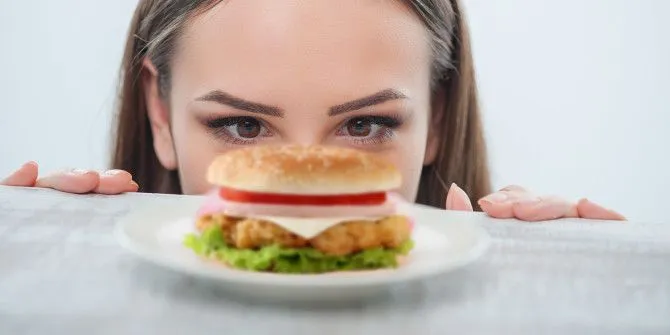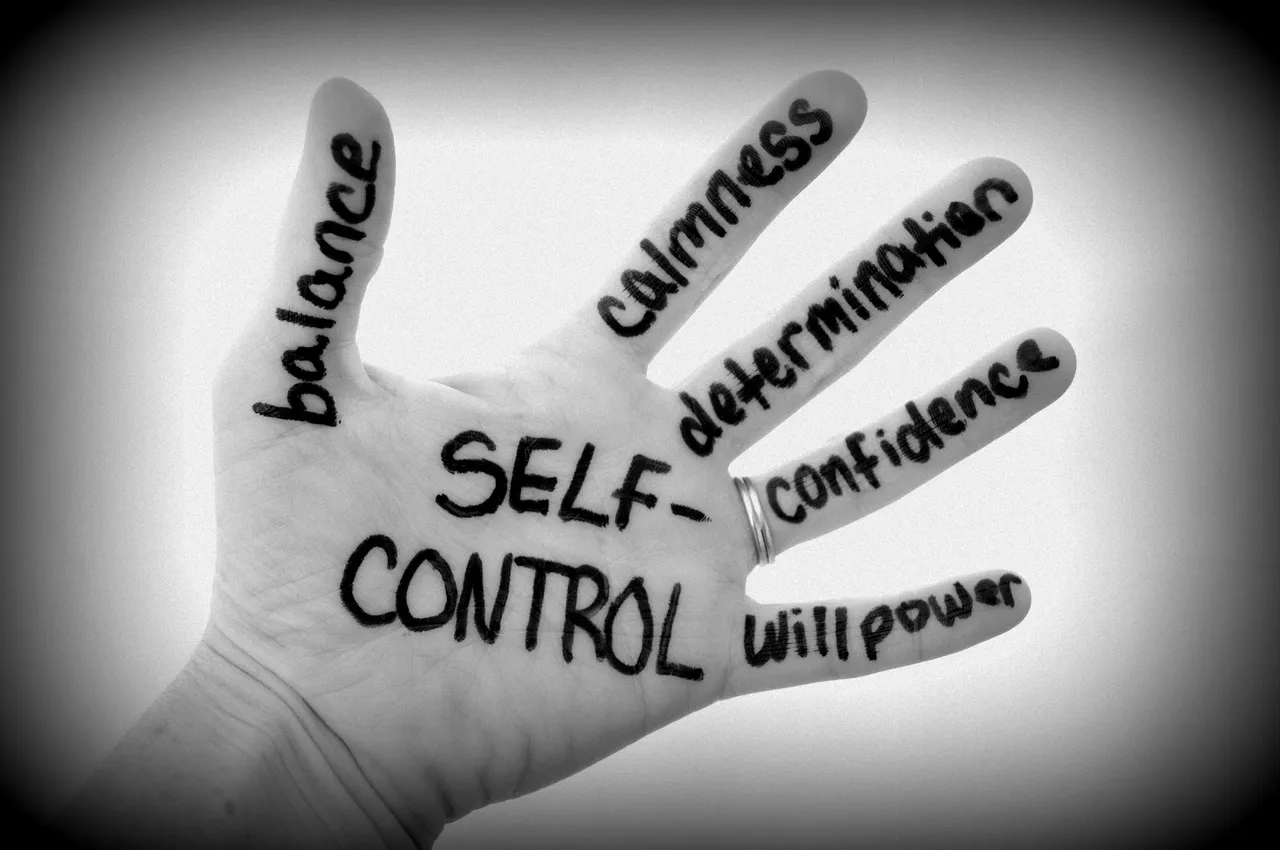A lot of people will have this experience, want to go on a diet, but can’t resist the temptation of food and began to eat; want to exercise, after a few days of exercising, find that lying on the sofa is more comfortable; Want to study, read a few pages then attracted by tv series ...
We often feel: Why is self-control so difficult? Why is it so easy to succumb to temptation? Why do some people have such strong willpower, never give up halfway? Why is my procrastination so serious?

source
Why do we often fall into a determination--work a little bit--then reward ourselves--give up halfway--then feel useless--and, if it's useless, then just give up--and then when you make up your mind again--but still stuck in the vicious cycle.
If you read "The Willpower Instinct: How Self-control Works, Why it Matters, and What You Can Do to Get More of It," you'll find that these questions have answers in this book.
The author of this book is Kelly McGonigal, a professor of psychology at Stanford University and a respected health education expert.
With the latest insights from disciplines such as psychology, biology, neurology, and economics, Dr. McGonigal created a course called "The Science of Willpower" Stanford University's Continuing Studies Program, and people who participated in the course said it could "change their lives."
The book includes a total of 10 chapters, every chapter is layers of progressive relationship, because the author wants to allow readers to follow the content of self-control exercises, at the end of each chapter, there is a summary with in-depth analysis of the ego and exercise that can improve self-control.
To sum up, this book mainly solves the following several aspects:

source
1. Improve self-control, is it a difficult thing?
Before the book, many people like me think that the improvement of self-control is a particularly time-consuming and challenging thing, and therefore feel that we certainly can’t do it, but also indulge ourselves, resulting in slack behavior.
What’s clear my head from the book is: improve self-control is not as difficult as imagined.
The book lets us know that willpower, which is self-control, is controlled by the brain's prefrontal cortex (the area behind the forehead and the eye), and the neurologist found that by training, the density of gray matter in certain areas of the brain could be increased, and the connections between them would be tighter (that is, we often say that the more we use our brain, the smarter we become).
The most direct way to improve self-control is to find ways to increase the density of gray matter in the prefrontal cortex.
But how do you do that?
The easiest way to do this is to meditate.
Many people find meditate is hard, and the author says that you do not need to go to the mountains to meditate, just pay attention to the essentials action, feel the breath is enough.
Some people feel that meditation can’t help concentrate, so can’t adhere to it. In fact, the truth is if you feel bad, the training is more effective, just like when you are stretching your muscle; if you feel pain means it’s working.
In addition, simple daily activities, even five minutes, will be like meditation, so that the brain control impulse, concentration of the region has a good change, to help people better self-control.

source
2. Is it a good thing if self-control is too strong?
Some people have very poor self-control, often fantasy if they have good self-control. But the book tells us that too strong self-control is not a good thing. Self-control consumes energy, and long amount of self-control will weaken the immune system and damages health.
Constantly exert pressure on themselves, will make the body under a state of self-control for a long time, but will make the body tired.
Self-control, like our muscle, has limits.
So, what can be done to restore the energy consumption caused by self-control?
One is exercise, if you do not like sports, then the definition of exercise can be expanded to walking, jogging, go out and get fresh air, play games with children can let you ease the body and mind, eliminate fatigue.
The second is to sleep, in a sense, willpower is produced from sleep!
Long not enough sleep will affect the body's absorption of glucose, and the prefrontal cortex does not have enough energy to control it.
The third is to learn to relax, but this does not mean that you can revert to the previous laziness, such as lying in front of the TV.
The book recommends a deep breathing approach: "Physiological relaxation response", which helps activate the parasympathetic nervous system, relaxes the sympathetic nervous system and relaxes the body.

source
3. why we often give up halfway?
I do not know whether people who try to lose weight have such experience, diet for a few days, feel that they are doing well, should reward themselves, and feel that occasionally eat a meal will not gain weight, so reassure themselves to eat a meal. After an exception has caused a few more exceptions.
The more exceptions and they can't stop the temptations, and simply give up, and can only declare failed to lose weight.
The book tells us that many people give up halfway, because of the fall into the "moral permission" trap. The so-called "moral permission" means that people often regard progress as a virtue, a good thing, and therefore think that they have the right to do something bad. While most people think that progress will inspire greater success, psychologists hold the opposite view: progress is always an excuse for relaxation.
People always associate progress with morals, and thus think they have the right to be entertained, so they step forward but take two steps back.
So how to get rid of the "moral permission" trap?
Think about what your intentions are and what your real goals are.
For example, your current weight is 120 kg, your goal is to lose weight to 100 kg, then you should not think of reward yourself when you reach 110 kg, because you haven't achieved your real goal yet.
Don't associate goals with moral sense together, and in fact, losing weight, saving money, learning, and so on, have nothing to do with morality.

source
4. Why we can't resist temptation and desire?
Have you ever been addicted to something?
For example, addicted to snacks, can’t stop when you start eating until the snack is finished, but later, particularly regret and feels like want to slaps yourself.
Why do we can’t resist temptation and desire, and temptation and desire can’t bring us true happiness and satisfaction?
This is because: When facing stimulation, the "reward system" in our brain is activated, releasing dopamine. Studies have shown that the secretion of dopamine causes people to expect rewards, but does not feel happy when rewarded. It just keeps you in the trap of being tempted, even if the temptation is exhausting.
If it’s serious, you will find yourself suffering from obsessive-compulsive disorder.
Is the dopamine completely useless?
Of course not. Dopamine can be used for us. By connecting the things you want to procrastinate with the things you love, and letting your brain secrete more dopamine, the things you want to procrastinate become what you want to do.
For example, organize paperwork in your favorite café; listening to music while finishing work and so on.
5. Why do we fall into the endless cycle of vices?
We are always hoping tomorrow will be different from today, giving ourselves the reason to indulge today.
When tomorrow comes, but regret wasting time.
Neurologists believe that when people think of today and tomorrow, the brain will think in different areas. So we often think that our future is unfamiliar, and now is completely different.
Therefore, many people choose to enjoy the day, indulge themselves today, and regret tomorrow and give birth to guilt. In order to escape the guilt, choose to continue to indulge themselves, and thus fall into a vicious circle and cannot extricate themselves.
How can we break this vicious circle?
The author gives several methods:
- When facing temptation, wait for 10 minutes.
- In these 10 minutes, think of a longer-term reward.
- Ask yourself if you want to give up long-term benefits for immediate gratification.
- Create a memory for future, leave a message to your future self, make yourself realize that the future you are still you, not strangers.
In short, the author believes that the most effective way to improve self-control is to figure out how to get out of control and why. Knowing where you're going is going to help people avoid these problems in action. Improve self-control is really not as difficult as you think.
A little practice in the way mentioned in this book will usher in a more controlled self.


